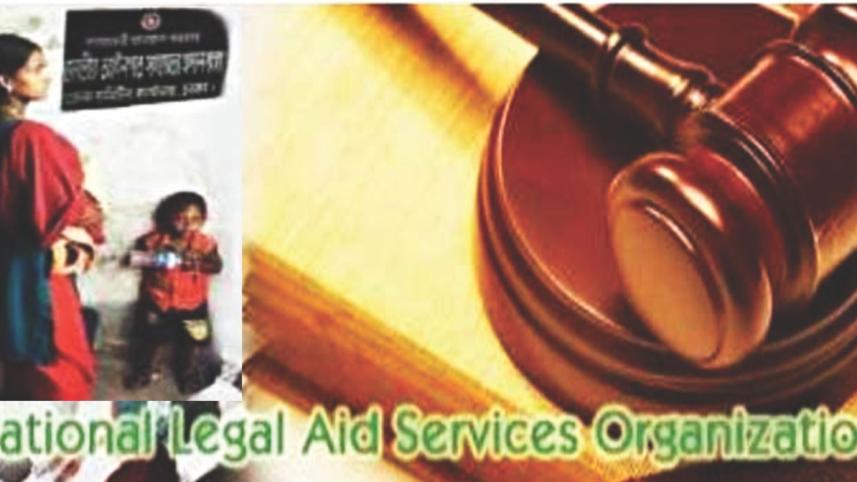Legal Aid to ensure access to justice

Festooned with august democratic ideals, the sacred words of the Bangladesh Constitution guaranteed the rights to 'access to justice' and entitlements to be equally treated at the refuge of legal protection in all sort legal crises for 'we, the people', irrespective of our societal, racial and political orientations. Followed by the historic judicial pronouncement of the long-awaited 'Independence(via separation from the executive) of the Judiciary' adjudicating the celebrated Masder Hossain Case by the Apex Court the people of Bangladesh are enjoying the privilege of getting legal remedies from a more influence-free judicial system in comparison to earlier era. Given this situation the disposal rate of the cases and the rate of access to justice for the common people have been improved manifestly.
The spirit of judicial independence was, by all feasible means, to foster objective, cost-effective and speedy legal justice and equitable relief to the litigant people. But do all the justice seeking people avail simple access to justice in the current judicial service domain? Ironically it's a big NO. Nonetheless, it is a matter of great gladness that the real situation has been tackled by the Government and is under several 'sustainable scheme of mitigation' through providing legal aid to the marginalised and impoverished people all over the country.
The legal framework of state-offered legal aid program was institutionalised with enacting the Legal Aid Services Act, 2000 and Legal Aid Services Regulation, 2001 by setting up the National Legal Aid Service Organization(NLASO) under the Ministry of Law, Justice and Parliamentary Affairs and initiating Court-Annexed Legal Aid Service in every district. According to its objective as embodied in its official website, NLASO provides legal aid to the poor litigants who are incapable of seeking justice due to financial insolvency, destitution, helplessness and also for various socio-economic conditions. The general direction and administration of the affairs and functions of NLASO vest in a National Board of Management. DLAC maintains a legal aid fund allocated by the government which is spent for poor litigants upon their applications. There are Upazilla and Union level committees also working to spread the legal aid program at grassroots.
NLASO's Mission is - 'To provide high quality legal aid services to the poor in accordance with the provisions of the Legal Aid Services Act'. While its Vision is- 'To ensure equal protection of the law for all and equal access to justice for the poor and disadvantaged'. And its Mandate is set- 'To provide legal aid to the litigants who are incapable of seeking justice due to financial insolvency, destitution, helplessness, physical and mental disability, gender disparity and other socio-economic conditions'.
28th April has been declared to be the National Legal Aid day since 2013 and being spontaneously observed through various awareness generating program both in national and local level every year. Seminars, discussion sessions, legal aid rally, information fair, legal aid related publications on that very day are arranged, organised and participated by the District, Upazilla and Union committees to uphold and magnify the significance of Government Legal Aid interventions. The NLASO has taken various candid endeavors to observe this year Legal Aid Day with utmost importance to convey the significance of Government Legal Aid Service for the impoverished and forlorn people seeking justice.
The Court-annexed Legal Aid program of Bangladesh Government has seen a far-reaching success in last few years through necessary policy reforms, awareness building programs and activating the monitoring mechanisms of the activities of District Legal Aid Offices and District Legal Aid Committees by the NLASO.
The writer is Senior Assistant Judge and District Legal Aid Officer (in-charge), Chittagong.



 For all latest news, follow The Daily Star's Google News channel.
For all latest news, follow The Daily Star's Google News channel.
Comments